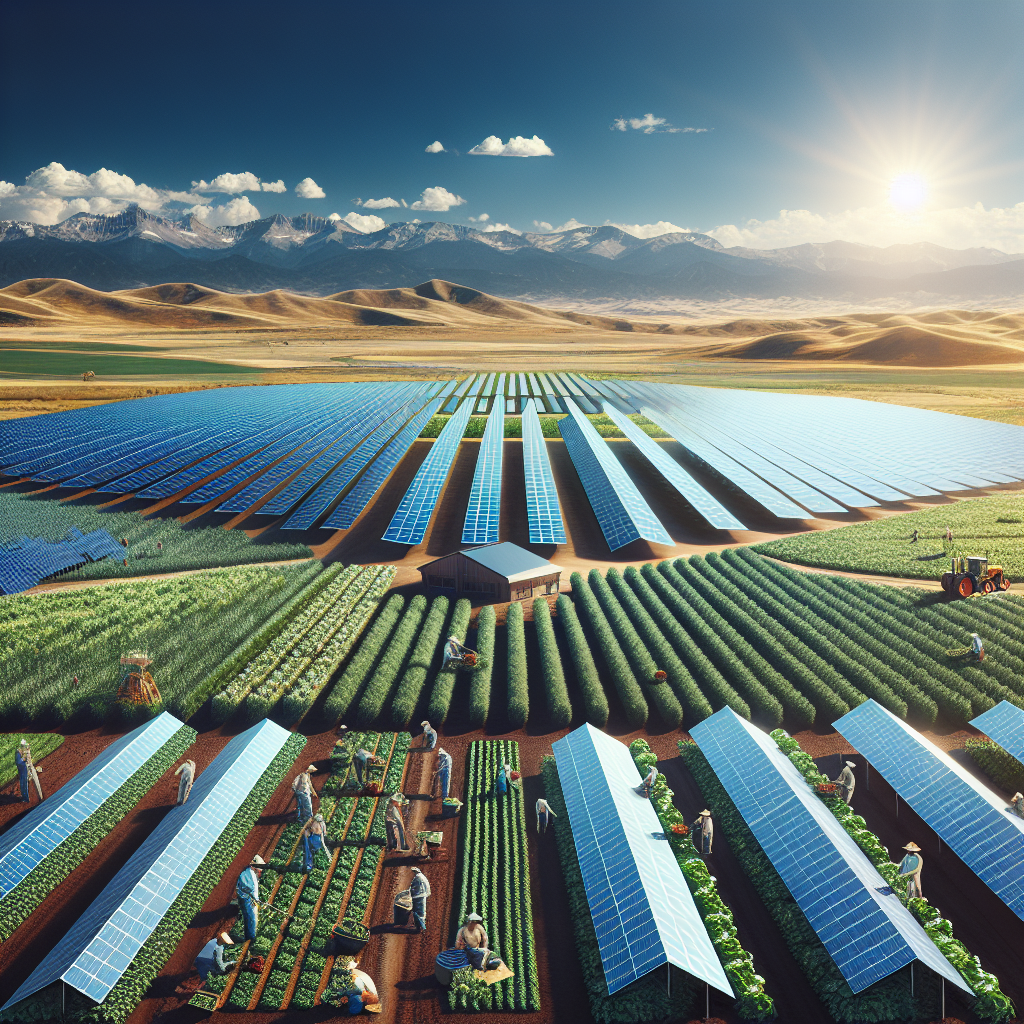Byron Kominek, a former Foreign Service worker and engineer, has found a unique way to adapt to climate change on his family’s farm in Longmont, Colorado. His 24-acre farm, named Jack’s Solar Garden in honor of his grandfather, now boasts 3,276 solar panels that generate enough electricity to power approximately 300 homes. But the panels themselves only take up four acres of the property, leaving the rest of the land available for farming and grazing.
Kominek’s idea to add solar panels to his family’s farm emerged out of necessity. Without much farming experience, he realized that it would be difficult to make a living solely from agriculture. Solar energy provided a way to have a long-term, steady income. And as temperatures continue to rise, creating usable shade will become even more important. Kominek believes that climate change is inevitable and that we need to find ways to adapt to the changing climate.
Traditional solar arrays are typically built low to the ground, which can have negative impacts on the land, such as soil compaction and habitat loss. But by raising the solar panels eight feet off the ground, Kominek argues that solar companies can open up a world of opportunities below. He has successfully grown a variety of crops, including salad greens, corn, and radishes, in the partial shade of his solar panels. Grazing animals also thrive in this environment.
Kominek’s approach to solar energy and agriculture, known as agrivoltaics, provides a blueprint for how farmers can adapt to climate change. By combining solar energy with farming and grazing, it protects the soil, provides an additional source of income for landowners, and creates valuable shade. As temperatures continue to rise, this will become even more important for plants, animals, and farm workers.
At 42 years old, Kominek’s resume includes a diverse range of experiences, from long distance motorcycle trips through western Africa to work in the Foreign Service and multiple engineering degrees. But it wasn’t until a few years ago that he tried his hand at growing food. Growing up largely disconnected from agriculture, Kominek began to question the extractive relationship many Americans have with the natural world while working in Zambia and Mozambique. He believes that we can change our approach and still be successful in agriculture.
Kominek’s innovative approach to solar energy and agriculture has gained national recognition and could have a significant impact on how we adapt to climate change. By providing a sustainable and profitable solution, he is showing that we can make a positive impact on the environment while still meeting our energy needs.

